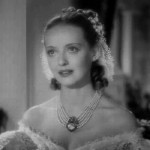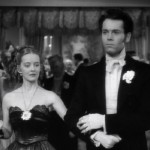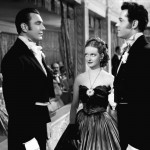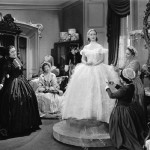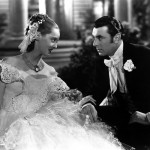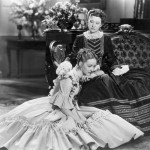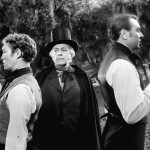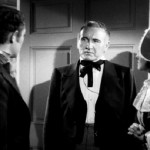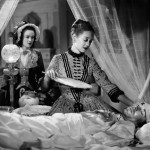
Jezebel – 1938
Bette Davis was a pretty hot ticket in 1938. She was a well-known and popular actress. But the film Jezebel propelled her into super-stardom. She won the Academy Award for Best Actress and I must say that she did a fantastic job in the role. She played the character of Julie Marsden, a strong-willed young bell in 1852, living in the South.
The character was not a very likeable one. She was selfish, spoiled, petulant, manipulative, and vindictive. But she was also flawlessly beautiful, self-assured, confident, ambitious, and head-strong. And as a side note, I know some people who would love her character, which is a little sad. The problem with Julie was that, on the surface, she seemed to revel in the idea of having so little regard for anyone else that she rebelled against social customs, carelessly offending and hurting everyone who loved her.
Playing opposite her, however, was a good man. He was handsome and level-headed. Henry Fonda played Preston Dillard, a Southern Gentleman, at first engaged to Julie, but later separated from her after he finds out just how spoiled and childish she really is.
The best scene in the film is the Olympus Ball. Apparently, in the setting of the South in the Antebellum Era, a very specific code of conduct was expected. Any deviation from this code was enough to turn anyone into a social pariah. As an act of revenge because Preston refused to leave an important meeting to shop for a ball gown with her, Julie decided to wear red to the Ball.
Unfortunately, an unmarried girl wasn’t supposed to wear anything but white. Wearing a red dress would offend pretty much everyone. Her mother warned her not to do it. Her ex-boyfriend warned her not to do it. Preston warned her not to do it, telling her that such a brazen act of rebellion would hurt her more than anyone else. But Julie wanted to punish Preston for not bowing to her girlish whims, so she wore the red.
But Preston’s solution was a simple and appropriate one. He allowed it. He allowed her to ruin herself, socially. Not only did he take her to the Ball, but he forced her to stay. When the other offended girls actually cleared off the dance floor rather than dance on the same floor with her, she realized what an incredible blunder she had made. She was near tears and asked to be taken home immediately. But Preston was perfect as he refused to let her leave. And then, after a miserable night, he left her and traveled north. He left her as a social outcast, scandalized and alone. Loved it! And to be sure, the Olympus Ball was just the beginning of Julie’s horrible and self-serving actions.
Other actors in Jezebel who did a fantastic job were George Brent as Buck Cantrell, Julie’s ex-boyfriend, Fay Bainter as Julie’s Aunt Belle Massey, Donald Crisp as Dr. Livingstone, Preston’s colleague, and Margaret Lindsay as Amy, Preston’s wife, whom he marries after leaving Julie. Also, Spring Byington had a small supporting role of the annoying mother of one of Julie’s Friends. The cast really did a fine job, especially Fay Bainter. She was lovely and showed a range of emotions and concern over Julie and her self-destructive behavior, though it was obvious that the familial love was always there.
But the film was an obvious vehicle for Davis, herself. Apparently the director, William Wyler was known for doing as many takes as was necessary to get the shots and performances he wanted, which some say was why his films were so wonderful. The range of raw and real emotions that he was able to get out of Davis was powerful.
And it was the combination of so many little things that made her performance so dramatic. A slight tilt of the head, the expression on her face as the mind of the character twisted and turned, the perfectly timed pauses, the brilliant twinkle in her eyes, the highs and lows of her mental state, the way she was almost in touch with reality, but never quite. Everything was played to perfection. I may not have liked the character she played, but I love the way she played it.
